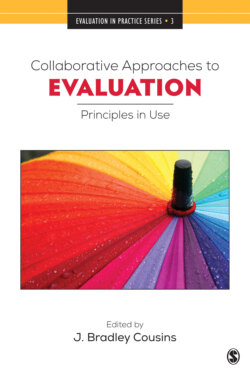Читать книгу Collaborative Approaches to Evaluation - Группа авторов - Страница 16
На сайте Литреса книга снята с продажи.
When It’s Developmental
ОглавлениеIn addition to, and quite apart from, summative and formative evaluation designs, is developmental evaluation (DE) (Patton, 1994, 2011). Unlike contexts where the specific intervention already exists and is being implemented, in DE, evaluators work alongside organizational and program community members to identify and develop innovative interventions through the provision of evidence-based insights. With evaluators at the decision-making table, DE by definition is collaborative and therefore a member of the CAE family.
Despite the argument that DE is distinct from summative and formative approaches, accountability and learning functions remain paramount. DE is all about creating innovative interventions through evidence-based learning, sometimes through trial-and-error, but accountability considerations factor in as well. For example, one of us (Shulha) is currently involved in a multisite DE in the Ontario education sector where accountability is being defined as taking snapshots over time where each picture describes what the team is doing; why the team is doing it; evidence (stories) that can confirm that logic is sound and that the appropriate needs are being addressed; and next-step planning.
Most certainly in developmental contexts, actors stand to benefit from the use of evaluation findings, be they instrumental or conceptual. But they also stand to benefit from their proximity to, or even participation in, evaluative activities. Patton (1997) dubbed learning of this sort process use, a phenomenon which has been actively studied and integrated into contemporary thinking about evaluation consequences (Cousins, 2007; Shulha & Cousins, 1997). Process use is a very powerful benefit of CAE and indeed can factor directly into decisions to use such approaches.
